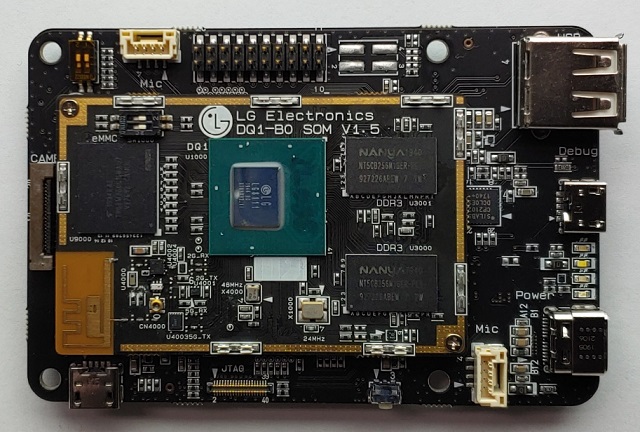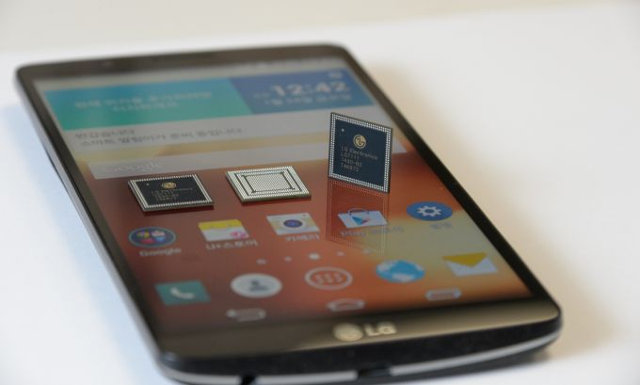LG Electronics has designed LG8111 AI SoC for on-device AI inference and introduced the Eris Reference Board based on the processor. The chip supports hardware processing in artificial intelligence functions such as video, voice, and control intelligence. LG8111 AI development board is capable of implementing neural networks for deep learning specific algorithms due to its integrated “LG-Specific AI Processor.” Also, the low power and the low latency feature of the chip enhances its self-learning capacity. This enables the products with LG8111 AI chip to implement “On-Device AI.” Components and Features of the LG8111 AI SoC LG Neural engine, the AI accelerator has an extensive architecture for “On-Device” Inference/Leaning with its support on TensorFlow, TensorFlow Lite, and Caffe. The CPU of the board comes with four Arm Cortex A53 cores clocked at 1.0 GHz, with an L1 cache size of 32KB and an L2 cache size of 1MB. The CPU also […]
LG NUCLUN Octa-core ARM SoC Powers G3 Screen Smartphone
LG has been making mobile devices since 1997, has entered the smartphone market in 2010, and they’ve now decided to foray into mobile SoC, with their very first SoC being an octa-core Cortex A15/A7 processor called NUCLUN, and found in their latest G3 Screen smartphone running Android 4.4.4. Details about NUCLUN processor are sparse, but the company did provide some specifications for LG G3 Screen smartphone: SoC – LG NUCLUN (LG7111) Octa-Core big.LITTLE processor with four ARM Cortex A15 cores @ 1.5GHz, four ARM Cortex A7 cores @ 1.2GHz. System Memory – 2GB RAM Storage – 32GB eMMC + MicroSD slot Display – 5.9″ Full HD IPS touchscreen Camera – 13MP OIS+ rear camera, 2.1MP front-facing camera Network – LTE-A Cat.6 for up to 225Mbps download speed. Battery – 3,000mAh Dimensions – 157.8x 81.8x 9.5mm Weight – 182g The phone, also codenamed as LG Liger F490L, F490K or F490S (depending […]




